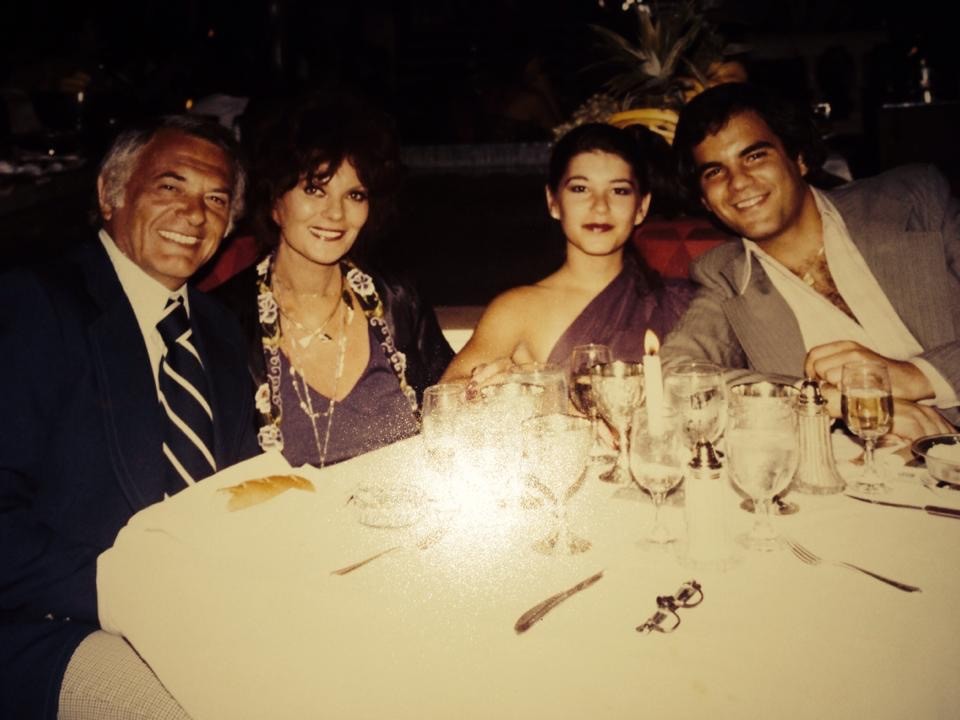Len Firestone, 93, TV industry pioneer
Leonard Firestone, a pioneer in the television programming and syndication industries, who lived in the Five Towns died on March 4 with his children and their spouses at his bedside. He was 93.
The son of immigrant parents, he was born on Aug. 30, 1921 and raised in Pittsburgh, where he attended Duquesne University. He began his broadcasting career as a radio disc jockey. Firestone served in the Air Force during World War II as an overseas pilot in Japan.
After the war, Firestone sought his fortune in New York City. In 1950, he was introduced to Carole “Honey” Greenfield, and eight weeks later they married and lived in Brooklyn. They moved to North Woodmere in 1955, and lived there for 18 years. Their love of boating and the water contributed to their decision to move to Hewlett Bay Park, where they lived for the 25 years.
He began in broadcast television at Unity Television in 1950, distributing theatrical films to TV stations. He quickly rose to the position of national sales manager. In the mid 1950s Ziv Television hired him and put him in charge of more than over 100 salesmen nationwide, distributing first-run TV programming such as “Sea Hunt” starring Lloyd Bridges, and “The Rifleman” with Chuck Connors.
In the early 1960s, Firestone was hired to run Four Star Television Distribution, founded by Hollywood screen legends Dick Powell, Charles Boyer, Ida Lupino and David Niven. Subsequently Firestone was senior vice-president at Filmways, where he was in charge of off-network syndication for shows such as “The Addams Family.”
In the mid 1960s he founded his own company, Firestone Films, which later became Firestone Program Syndication Company. It became one of the leading innovators in first-run syndication. Initially finding success in distributing first-run talk shows like “The Pat Boone Show,” his vision was to produce first-run half-hour programming, specifically for the syndication market. Up until that time, the only series programming offered in syndication were mostly reruns of off-network series.
To beat his sales competition, Firestone used a telephone-based operation that allowed him to cover more market per day that his competition which had salespeople traveling to singular markets. He consistently outsold his competition, resulting in greater sales revenues and wider distribution. Client producers included those of shows such as “To Tell the Truth,” “Prisoner: Cell Block H,” and “Candid Camera.”
He was an advocate for the legislation of the FCC’s establishment of the Prime Time Access Rule, which enabled network TV affiliates the ability to access a one-hour block of time per day from their respective broadcast networks’ prime time schedule, in order to allow those stations to air their own syndicated programming. This was a boon to those stations, as well as to producers and first-run programming syndicators, and ultimately, to the TV viewing audience itself.
Firestone retired in 1980, splitting time between the Five Towns and Aventura, Fla. After Honey died in 2009, Firestone moved to Hilton Head, S.C., to be closer to family. He was an avid boater, a competitive big game fisherman, a sports car and motorcycle enthusiast, a chess master, a pilot, and a computer expert.
He is survived by his children: Brian (A.J.) Firestone of New York, Jack (Robin) Firestone of South Carolina, and Pattie (Peter) Posner of New York; grandchildren Errol (Nicole) Firestone of New York, Brandon (Hilary) Firestone of California, Sean, Mac, and Alec Posner, and Jhanna Firestone; and his great grandson, Noah Firestone, all of New York. He was buried in Hallendale, Florida next to his beloved wife of 59 years.






